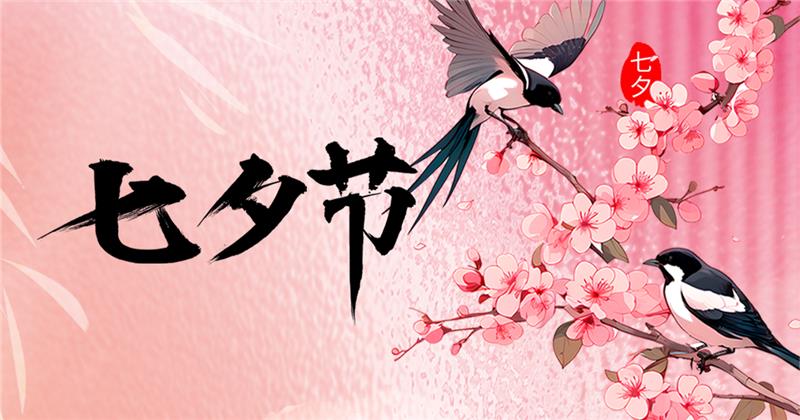
Qixi Festival 2025: When Love Crosses the Stars
What Is Qixi Festival? History, Customs, and 2025 Celebrations
29 August 2025
Discover the history, traditions, and modern celebrations of Qixi Festival 2025, China’s “Valentine’s Day.” Learn about the legend of the cowherd and weaver girl, ancient customs, and how this festival of love is honored today.
Every year, on the seventh day of the seventh lunar month, the night sky tells one of China’s most enduring love stories. The Qixi Festival, also known as the Double Seventh Festival, celebrates the legend of Niulang, the humble cowherd, and Zhinü, the heavenly weaver girl. Forbidden to be together, they were separated by the Milky Way and reunited only once a year when magpies formed a celestial bridge across the stars. For more than 2,000 years, this story has been passed down, blending myth, tradition, and cultural values.
Ancient Origins and Traditions
The Qixi Festival first appeared during the Han Dynasty (206 BCE–220 CE), when people began honoring Zhinü as a symbol of diligence, craftsmanship, and devotion. Young women in particular would gather under the moonlight, laying out offerings of fruits, tea, flowers, and small handicrafts. These rituals were called “Qiqiao” (乞巧), roughly meaning “seeking skill,” where girls asked for talent in weaving, embroidery, and other household arts—skills highly valued in ancient China. This connection to weaving also symbolized weaving one’s destiny and wishing for a harmonious marriage.
Another popular custom involved threading a needle under the moonlight, testing dexterity and symbolizing precision and perseverance. In some regions, girls would carve small animals from melons and display them as part of the offerings. These acts were not only prayers for romance but also expressions of artistry, creativity, and community bonding.
The Legend of Niulang and Zhinü
The festival’s origins lie in the famous legend of Niulang and Zhinü. Niulang, a kind cowherd, and Zhinü, the heavenly weaver girl and daughter of the Jade Emperor, fell deeply in love. When their relationship was forbidden by the gods, they were separated by the Milky Way, destined to meet only once a year when magpies formed a bridge across the heavens. This story, immortalized in poems, operas, and paintings, gave Qixi its romantic yet bittersweet essence.

Regional Variations
Qixi traditions vary across China. In northern regions, families set up altars with incense, fruits, and flowers, while in southern areas, girls often made flower garlands and shared them with friends. In Shandong and Shanxi, people made Qixi dumplings filled with different ingredients—the contents were believed to predict one’s fortune.
Other customs included stargazing to honor Vega and Altair, stars said to represent Zhinü and Niulang. Rain on Qixi was often interpreted as magpies weeping or the lovers crying during their reunion.
Qixi in Modern Times
Today, Qixi is often compared to Western Valentine’s Day, with couples exchanging gifts like roses, chocolates, or jewelry and enjoying romantic dinners.
Technology has also left its mark—many couples now share their love through digital red envelopes or custom-designed e-greetings. Although modern interpretations of festivities differs from traditional, the essence of Qixi remains the same: honoring love, patience, and the belief that devotion can bridge even the widest divide.
The Universal Message of Qixi
While rooted in Chinese culture, Qixi speaks to a universal longing. It is not only a romantic holiday but also a reminder of values such as perseverance, loyalty, and craftsmanship. The story of Niulang and Zhinü reminds us that love requires resilience, patience, and hope. And the festival’s traditional practices highlight the importance of skill, artistry, and the pursuit of a balanced, fulfilling life.
As we celebrate Qixi Festival 2025, may we take inspiration from both the stars above and the traditions passed down for centuries—cherishing our loved ones, honoring cultural heritage, and remembering that true love and dedication can light up even the darkest sky.
Disclaimer: The views and opinions expressed by the authors in this publication are their own and do not necessarily reflect the views of OTT Remit, OTT Financial Inc., and the OTT Group of Companies. This publication is provided for general information purposes only and should not be considered as exhaustive or comprehensive in covering all aspects of the discussed topics. It is not intended to replace seeking advice from a specialist or professional.




